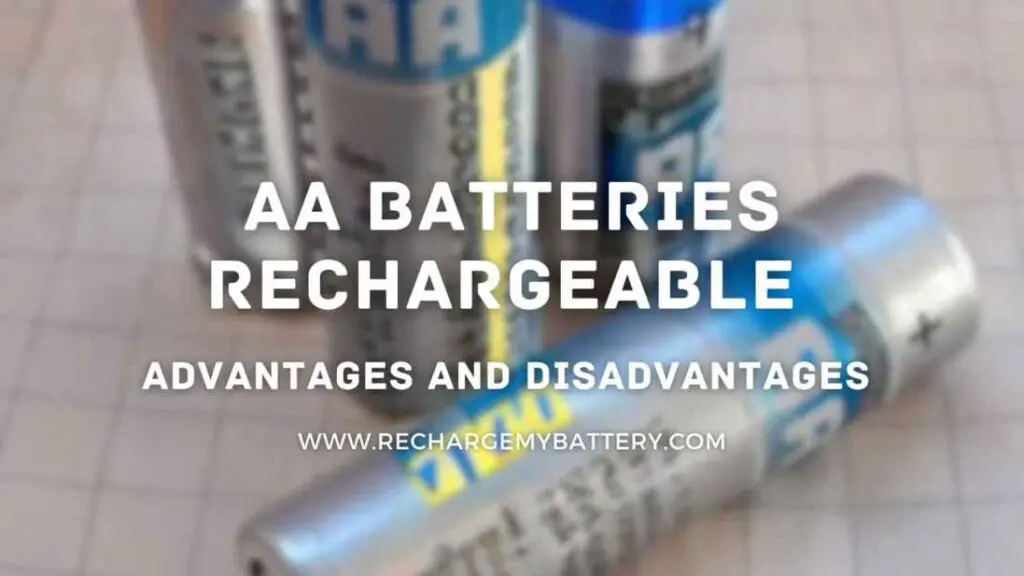In this article, we will explore the reasons behind the fast depletion of rechargeable batteries and provide insights on how to maximize their lifespan.
Understanding Rechargeable Batteries
Rechargeable batteries, also known as secondary batteries, are designed to be used multiple times. Unlike disposable batteries, which are single-use and cannot be recharged, rechargeable batteries offer the advantage of being able to store and release energy repeatedly.
Factors Affecting Battery Life
Several factors can impact the lifespan of rechargeable batteries:
1. Battery Capacity
The capacity of a battery determines how much charge it can hold. Batteries with higher capacity will last longer before requiring a recharge.
2. Charging and Discharging Cycles
Rechargeable batteries have a limited number of charging and discharging cycles. Each cycle gradually reduces its overall capacity.
3. Temperature
Extreme temperatures, both hot and cold, can negatively affect battery performance and lifespan.
4. Self-Discharge
Rechargeable batteries lose charge over time even when not in use. Higher self-discharge rates can result in faster depletion.
5. Overcharging and Undercharging
Incorrect charging practices, such as overcharging or undercharging, can impact battery health and shorten its lifespan.
Battery Memory Effect
One common misconception about rechargeable batteries is the memory effect. The memory effect refers to a decrease in battery capacity due to incomplete discharge and recharge cycles. However, modern rechargeable batteries, such as lithium-ion batteries, are not significantly affected by this phenomenon. It is more prevalent in older battery technologies like nickel-cadmium (NiCd) batteries.
Battery Chemistry
Different battery chemistries have varying characteristics, affecting their performance and lifespan. Here are three common types:
- Nickel Cadmium (NiCd): NiCd batteries are known for their high energy density and ability to handle high discharge rates. However, they suffer from the memory effect and have relatively low energy capacity compared to other battery chemistries.
- Nickel Metal Hydride (NiMH): NiMH batteries provide a higher energy density compared to NiCd batteries. They are less prone to the memory effect but still exhibit some self-discharge over time.
- Lithium-ion (Li-ion): Li-ion batteries offer the highest energy density among rechargeable batteries. They have no memory effect, low self-discharge rates, and can handle a large number of charge cycles. Li-ion batteries are widely used in portable electronic devices.
Tips to Extend Battery Life
To maximize the lifespan of rechargeable batteries, consider the following tips:
- Proper Charging Techniques: Use the correct charger and follow manufacturer guidelines for charging. Avoid overcharging or leaving batteries plugged in for extended periods.
- Storage Considerations: Store batteries in a cool, dry place. If storing for an extended period, partially charge them and recharge before use.
- Temperature Control: Avoid exposing batteries to extreme temperatures. High heat can accelerate self-discharge, while cold temperatures can reduce their performance temporarily.
- Regular Usage: Regularly using and recharging batteries helps maintain their overall capacity.
- Battery Maintenance: Keep battery contacts clean and free from debris. Clean them with a soft cloth or cotton swab if necessary.
Common Mistakes to Avoid
To ensure optimal battery performance, avoid the following mistakes:
- Using incompatible chargers or charging cables.
- Allowing batteries to fully discharge before recharging.
- Leaving batteries unused for long periods without partial charging.
- Ignoring manufacturer guidelines for battery usage and maintenance.
Conclusion
Understanding why rechargeable batteries die so fast can help us take appropriate measures to extend their lifespan. Factors such as battery capacity, charging practices, temperature, and battery chemistry all play significant roles in determining battery performance.
By applying these proper charging techniques, considering storage conditions, and utilizing batteries regularly, we can maximize their lifespan and minimize frustration caused by frequent recharging.
Thank you for reading this article.

